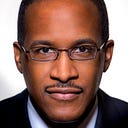My Long Term Criticism of US News Rankings Is About To Be Tested By Revisionist History

On January 13, 2021 I got an e-mail that began like this:
My name is Malcolm Gladwell. I’m a writer in New York. I do the Revisionist History podcast.
GET OUTTA HERE! I just got an e-mail from Malcolm Gladwell. So of course I was excited but then became really intrigued by his idea. He wanted to look at US News rankings.
I wrote my first op-ed about the faulty US News rankings in September of 2005 for the Arkansas Democrat Gazette. As the new president of Philander Smith College, I knew these rankings were not simply a problem for us; they misrepresented the work that we did.
So pretty consistently when I have a chance to criticize these particular rankings, I go in. I even had a chance to challenge the man behind the rankings, Brian Kelly, when he spoke at the Clinton School in 2007. I argued then the rankings were simply about inputs, inputs that had to have few Black, Brown, poor, part-time, and non-traditional students.
He didn’t have a good answer. I wrote an op-ed for Diverse Issues after that encounter:
So whenever I could challenge the rankings I did. Below is a list of interviews and editorials sharing my thoughts over the years. Consider this the background material as Malcolm will do a two-part episode of Revisionist History on the US News rankings, and one the episodes is simply entitled, “Dillard.” He made a visit to Dillard in April, we talked more (and have had several conversations), and he met with some students (you’ll hear two of them in the episode).
I hope you’ll tune in and learn how ridiculous the rankings are.
The Prez
— — — — — — — — — — — — — — — — — — — — — — — — — — — —
Interview, May 2007, Inside Higher Ed:
Walter Kimbrough, the president of Philander Smith, said he joined the opposition to U.S. News because he read Thacker’s critiques of the way admissions has evolved away from education values, and because he thinks the rankings hurt black colleges. The “best” colleges, according to U.S. News, are those that reject large percentages of applicants, admit only those with high SAT scores, and have huge endowments to pay for the very best student services, Kimbrough said. Such a methodology “penalized historically black colleges for our mission,” he said.
Interview, June 2007, Diverse Issues:
“If there are people looking at the rankings as a measurement of the quality of an institution, they think [HBCUs] do not have any type of qualities,” says Kimbrough. “[The rankings] do not tell you who the best schools are, just the most privileged.”
Interview, June 2016, University Business:
Lists focused tightly on endowment levels, selectivity and SAT scores ignore the work these institutions do to promote economic mobility in the United States, says Walter Kimbrough, president of Dillard University in New Orleans.
Interview, August 2019, USA Today:
Rankings, though, reflect not what colleges do, but who the college serves, Kimbrough said. The colleges that do especially well in the rankings are generally the ones with the fewest students on Pell Grants, a type of financial aid given only to students from low-income backgrounds. Students from such backgrounds often have less academic preparation and will have more ground to cover.
Interview, September 2019, Higher Ed Dive:
“It’s just window dressing,” Dillard University President Walter Kimbrough told Education Dive of the recent change to include social mobility in the traditional scores. “Particularly for an African American student, (a school) can be ranked really high, but they might have yearly racial incidents on campus.”
Also cited as one of 10 presidents who criticized the rankings.
